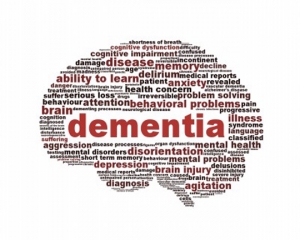Administrator
Our Board of Directors
Recognizing And Treating Depression
Sleep Problems
Depression can affect your body as well as your mind. Trouble falling or staying asleep is common in people who are depressed. But some may find that they get too much shut-eye.
A Visual Guide to Generalized Anxiety Disorder
Generalized Anxiety Disorder
It's natural to worry during stressful times. But some people feel tense and anxious day after day, even when there is little to worry about. When this lasts for six months or longer, it may be generalized anxiety disorder or GAD. This illness affects nearly seven million Americans. Unfortunately, many people don't know they have it. So they can miss out on treatments that may lead to a better life.
Effects Of Repeated Deployment
The mental and physical health consequences
of service in Afghanistan (Operation Enduring
Freedom [OEF]) and Iraq (Operation Iraqi
Freedom [OIF]) have been well documented.
Studies report rates of posttraumatic stress
disorder (PTSD) among returning soldiers
ranging from 4% 1 to 31%2 and rates of depression
ranging from 3% 3 to 25%, 4 with rates
varying by diagnostic criteria, military population,
deployment location, and time since deployment.
How Mindfulness Can Help Your Health
By Sonya Collins
WebMD Magazine - Feature
Reviewed by Patricia A. Farrell, PhD
You're on a conference call while responding to an email and eating your lunch. Sound familiar? Most people divide their attention between several tasks at once without being truly engaged in any of them. But your well-being could suffer as a result.
The Triangle Of Care
The essence of this document is to clearly identify the six key elements required to achieve better collaboration and partnership with carers in the service user and carer’s journey through a typical acute episode.
For each element we suggest good practice examples and resources that may be helpful.
Rwanda
This report presents the findings of the Rwanda Deployment Health Study, a Department of Veterans’ Affairs (DVA) funded study conducted by the Centre for Australian Military and Veterans’ Health (CAMVH).
The purpose of the study was to determine the health and compensation history of veterans of the Rwanda deployment (Operation TAMAR [Troops and Medical Aid Rwanda], hereafter Op TAMAR) and differences between subgroups of the cohort.
The aims of the study are to increase understanding of contemporary veterans’ long‐term health and compensation and provide insights into the use of existing data to research veterans’ health.
The study collected, reconciled, developed and conducted exploratory analysis of data from Defence personnel and medical records, DVA compensation datasets and a National Death Index linkage.
CAMVH has produced an accurate nominal roll for the deployment, developed a framework for the extraction and analysis of medical records data and established a mortality study for the cohort.
Who Cares For The Carer?
The Dunt Review 1 into mental health services in the Australian Defence Force (ADF) enabled significant
investment in programs and initiatives across the defence environment in Australia. The subsequent attention
to long standing mental health issues for our veteran community is both timely and admirable, and has indeed
begun to address mental health stigma, education and community support around this country.











